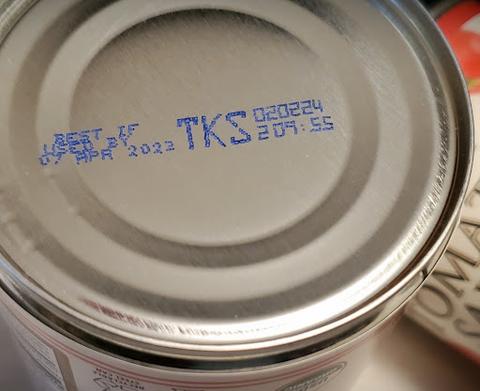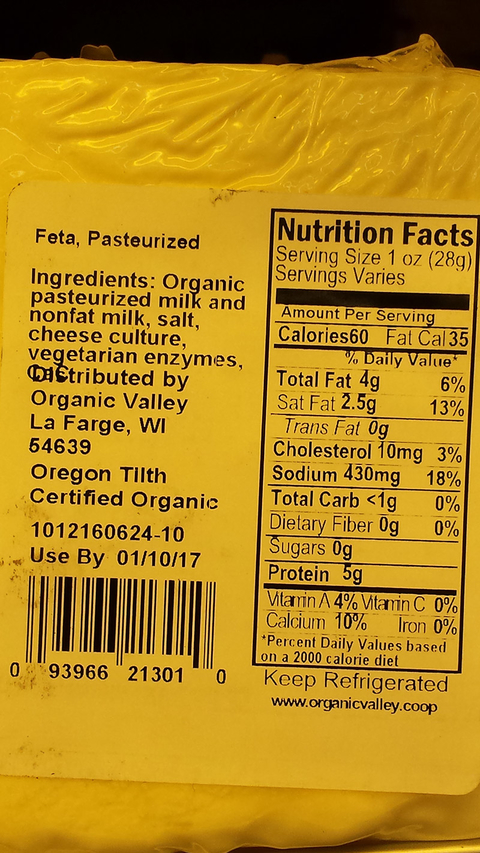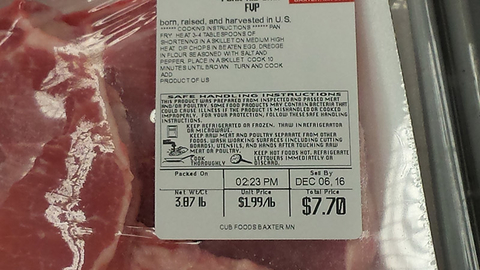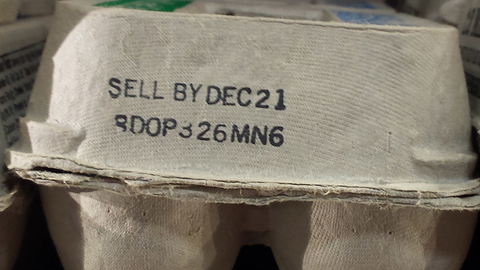"I found vegetable oil in my cupboard. It’s 2 years old. Is it still okay to use?"
"How long does summer sausage keep in the refrigerator?"
"How long can I keep meat in the freezer?"
Many times the shelf-life of food is not so much a matter of safety as it is quality. We want food that is safe to eat as well as food that tastes good.
Observing "sell-by," "expiration" and "use-by" dates is recommended. But what do these terms mean? There isn’t a universally accepted food-dating system in the United States. Most dating is voluntary and is the manufacturer's best guess at how long the product will last.
Best before
Terms like "best before" and "better if used by/before" are freshness dates. It tells you how long the product will be at its best flavor and quality. Baked goods, cereals, snacks, frozen entrees and some canned food will have freshness dating. The food is safe to eat after this date. Though, that three-year-old candy bar might taste stale, have an odd flavor or be chewier than normal.
Use by
Perishable food like meat, yogurt and eggs often have a "use by" date. If properly stored, you have a one-week grace period to use up the product. Use-by dates on yeast or refrigerated dough indicate how long the product will retain its rising power. Discard infant formula past its "use by" date as the nutritional value may be compromised.
Sell by
"Sell by" dates on poultry, fish, meat, bread and dairy products tell the store how long to display the product for sale. Although the store should pull a product after the "sell by" date has passed, it is legal to sell the food after this date. It is also legal for the retailer to change a date on wholesome fresh meat that has been cut up and wrapped in the store's meat department. Most food is safe to eat for a week after the "sell by" date. Fresh meat, fish and poultry should be cooked within a day or two of home refrigeration or placed in the freezer for longer storage. Once frozen, it doesn’t matter if the date expires because foods kept frozen are safe indefinitely.
Shelf life of eggs
What about the shelf life of eggs? The "sell by" or "expiration date" on the carton is the last day the store may sell the eggs as fresh. On grade AA eggs, this date can’t be more than 30 days from the date the eggs were packed in the carton. They are still safe in your refrigerator for 3 to 5 weeks at 40 degrees F or colder.
Call the University of Minnesota AnswerLine, 1-800-854-1678, with your food safety questions.
- USDA Food Safety and Inspection service. Food Product Dating.
- AnswerLine. University of Minnesota.
Reviewed in 2021





